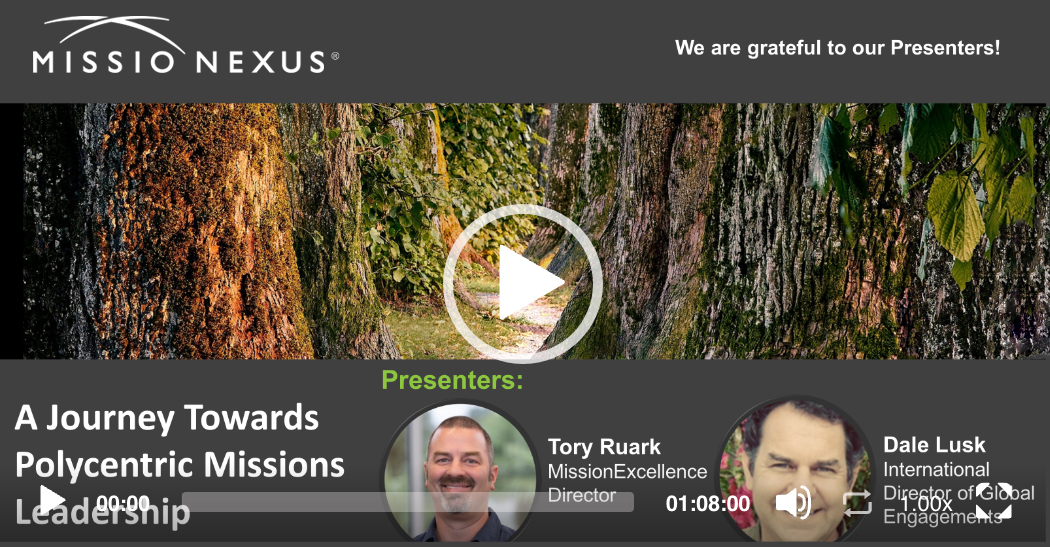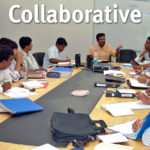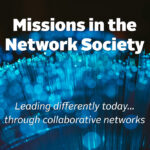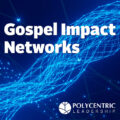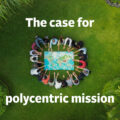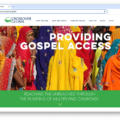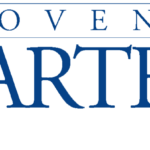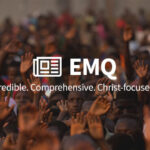WEBINAR SUMMARY
MissioNexus recently held a webinar on Polycentric Mission Leadership. The following summary of the webinar gives a snapshot of the learning… To see the full webinar, click here on MissioNexus site: https://missionexus.org/webinar-a-journey-towards-polycentric-missions-leadership/
Embracing Polycentric Leadership: A Paradigm Shift in Mission – Part I
In the landscape of leadership, the concept of polycentricity is like a breath of fresh air amidst the staleness of unilateral decision-making. It challenges the traditional notion of one center of power, one perspective, and one way of doing things. Instead, it advocates for multiple inputs, diverse viewpoints, and collaborative decision-making. In essence, it’s about being “Better Together.”
Tory Ruark and Dale Lusk summarize the theological roots in this webinar to begin:
The roots of polycentric leadership can be traced back through history, finding resonance in biblical narratives and philosophical wisdom. From the triune nature of the Godhead to the counsel of many in Proverbs, the essence of polycentrism underscores the wisdom of diversity.
One notable biblical example of polycentric leadership is evident in the early growth of the Church. Initially, the disciples held a unicentric view of spreading the gospel, rooted in their Jewish identity. However, divine interventions, such as Peter’s encounter with Cornelius, challenged their narrow perspective.
Peter, ends up heading to Joppa with some others, shares the gospel with with Cornelius and his family, They give their lives to Jesus. And then the big thing that happens is the Holy Spirit comes on them at that moment. And it says in Acts chapter 10 that the Jewish people who were with Peter were amazed, surprised, blown away.
Wait a second, The Holy Spirit can go to a Gentile Jew, a Roman of all people, and wow. So that kind of blew them out of the out of the water.
Subsequently, the Antioch church emerged as a hub for multicultural mission endeavors, epitomizing the shift towards polycentrism.
Despite historical fluctuations, the modern resurgence of polycentrism in missions is palpable. As globalization erodes the dominance of Western-centric approaches, a natural shift towards inclusivity and diversity emerges. However, transitioning from unicentric to polycentric models isn’t devoid of challenges.
Tory summarizes the work of mission leader and scholar; Joseph Handley as follows:
I want to give one article I read that had a really helpful set of 6 themes in your life to work on. Joseph Handley’s work on Polycentric Leadership:
These six things will help you thrive in a polycentric model.
1. First is charisma, and I don’t think of that as showiness to follow you, but think of it as a mature faithfulness that’s attractive to followers. In other words, we need to be spiritually rooted and grounded.
2. How collaborative are you? Are you able to work without self promotion for the good of the team?
3. Are you creating a community with shared values and a mutual vision that people buy in and understand?
4. Are you creating relationships within your sphere of influence, realizing that relationships are the foundation for leadership freedom?
5. This was this was an interesting one. Are you able to let go of the way you’ve done things in the past and allow people to operate in the in the way that is called for, in this particular context and situation?
6. And finally, are you appreciative of the difference in others and able to bring those together to be Better Together?
So that is kind of a quick rundown on unicenterism versus polycentrism.
In the context of mission organizations, embracing polycentric leadership necessitates navigating cultural dynamics and power differentials. For instance, the perception that major funding sources should dictate decision-making can stifle the voices of partners from other cultures. Overcoming such barriers requires intentional dialogue, mutual respect, and genuine collaboration.
One inspiring example comes from Acts 29, a global network of church leaders spanning 25 countries. Through collaborative efforts, they’ve cultivated a space where diverse voices shape the direction of ministry. Leaders like Mario from Sweden and Tip and Patrick from Thailand exemplify the transformative potential of polycentric leadership.
Mario’s account reflects the richness that emerges when diverse cultures intersect. By embracing fresh ideas and perspectives, their denomination in Sweden experiences renewed vitality and growth. Meanwhile, Tip and Patrick’s journey illustrates the power of friendship and mutual learning in bridging cultural divides. Their elevation to leadership positions signals a shift towards empowering indigenous leaders—a pivotal step in fostering polycentricity.
Indeed, polycentric leadership isn’t a panacea for all organizational woes. It requires humility, adaptability, and a willingness to challenge entrenched norms. Yet, its benefits are manifold. By honoring the image of God in each individual, aligning with biblical principles, and fostering a culture of inclusion, polycentric leadership paves the way for holistic transformation.
As we journey forward, let us heed the call to embrace polycentricity in leadership. Let us recognize the inherent value of diverse voices and the transformative potential of collaborative decision-making. In doing so, we not only enrich our organizations but also embody the essence of unity in diversity—the hallmark of polycentric leadership.
Embracing Polycentric Leadership: A Journey of Humility and Growth – Part II
An interview with Dale Lusk on MissioNexus
In the world of leadership, the concept of polycentrism is gaining increasing recognition and respect. It’s a paradigm shift from the traditional unicentric model where decisions and control are centralized around one individual or culture. Instead, polycentric leadership recognizes and embraces the diversity of voices, perspectives, and talents from various backgrounds to foster collaboration and innovation.
The story of Dale and his ministry, Merge, exemplifies this transformative journey from unicentrism towards polycentrism. Dale candidly shares his evolution from a Dale-centric approach to a more inclusive and globally-minded leadership style.
In the early years of Merge, Dale admits to being at the helm, making all the decisions and driving the ministry forward. However, he soon realized that for sustainable growth and impact, he needed to expand beyond his own abilities and perspectives. This realization led to the recruitment of individuals from diverse backgrounds, initially focusing on Americans but quickly recognizing the wealth of talent beyond borders.
As Dale’s team diversified, so did the leadership dynamics. He recounts the formation of a leadership team comprising individuals like Alex Velasco, whose challenging perspectives pushed Dale out of his comfort zone. Alex’s confrontational style forced Dale to confront his cultural biases and rethink his approach to leadership. It was a humbling experience but one that propelled Dale towards embracing polycentrism.
The turning point came when Merge expanded its operations globally. Dale questioned the necessity of having Americans oversee operations in other countries when there were capable individuals within those regions. This realization marked a significant shift towards a truly polycentric model where leadership was distributed across different cultures and continents.
In 2019, Dale took another bold step towards polycentrism by forming a leadership team comprising individuals from various countries, including Mexico, the Dominican Republic, and the United States. This diverse team was entrusted with the responsibility of steering Merge forward, with Dale transitioning into a consultant role.
However, embracing polycentric leadership wasn’t without its challenges. Dale candidly shares the frustrations and setbacks encountered along the way, including the humbling experience of relinquishing control and confronting personal biases. The onset of COVID-19 provided a necessary pause for reflection and strategic planning, further reinforcing the importance of collaboration and adaptability in navigating uncertain times.
One of the key lessons Dale learned on this journey was the importance of humility in leadership. Letting go of ego and embracing diverse perspectives were essential steps towards fostering a culture of inclusion and innovation within Merge. It required a shift from a me-centered mindset to one focused on collective success and impact.
As Dale reflects on his journey towards polycentric leadership, he acknowledges the ongoing nature of the process. There will always be obstacles to overcome and lessons to learn, but the rewards of embracing diversity and collaboration far outweigh the challenges.
Dale’s story serves as a compelling testament to the transformative power of polycentric leadership. By embracing diversity, humility, and collaboration, organizations like Merge can unlock their full potential and make a meaningful impact on a global scale.
Interviewing the Team with Merge Ministries
Navigating the Challenges of Polycentric Leadership: Insights from Merge Ministry
Polycentric leadership, with its emphasis on diversity, collaboration, and shared decision-making, is reshaping the landscape of organizational management. As evidenced by the journey of Merge Ministry, transitioning from a unicentric to a polycentric leadership model requires intentional effort, humility, and a willingness to navigate various challenges.
Mario’s initial skepticism and subsequent enthusiasm upon hearing about Dale’s proposal for a leadership team reflect the mixed emotions often encountered when embracing change. His journey from doubt to excitement underscores the importance of open-mindedness and a willingness to explore new paradigms.
Daniela highlights the communication challenges inherent in polycentric leadership, emphasizing the need for active listening, humility, and cultural sensitivity. By fostering an environment where diverse voices are heard and valued, Merge Ministry cultivates a broader perspective and a deeper understanding of the communities it serves.
Alejandro delves into the complexities of communication within a polycentric framework, acknowledging the need for flexibility and adaptability. Whether through text, phone calls, or face-to-face meetings, effective communication requires a nuanced approach that considers cultural nuances and individual preferences.
The discussion on confronting differences and addressing sensitive topics underscores the importance of trust, empathy, and mutual respect. Mario emphasizes the need for prayer, compassion, and patience in navigating difficult conversations, while Daniela advocates for open dialogue and active engagement to foster understanding and collaboration.
Alejandra reflects on her personal journey of growth and self-awareness within a polycentric leadership context, highlighting the need to challenge hierarchical norms and embrace diversity. By deconstructing ingrained biases and fostering a culture of inclusivity, Merge Ministry empowers leaders from diverse backgrounds to thrive and contribute meaningfully.
Dale’s insights shed light on the practical challenges of funding and sustaining a polycentric leadership model. While financial sustainability remains a pressing concern, Dale remains optimistic about the potential of polycentric leadership to revolutionize mission work and empower leaders worldwide.
In conclusion, Merge Ministry’s journey exemplifies the transformative power of polycentric leadership in fostering collaboration, diversity, and innovation. By embracing humility, trust, and open communication, organizations can navigate the complexities of a globalized world and make a lasting impact on communities around the world.
More Information
For a handout from the webinar, you can download it here…
![]() A Journey to Polycentric Mission Leadership – webinar handout (PDF)
A Journey to Polycentric Mission Leadership – webinar handout (PDF)
Presenters: Tory Ruark and Dale Lusk
- Tory went on his first mission trip in college and his life has never been the same. He’s been on staff with MissionExcellence since 2004 and led mission trips and spearheaded partnerships with leaders in many countries during this time.
- Dale has been a missionary with The Evangelical Covenant Church since 1993. He is passionate about breaking out of old paradigms, elevating the voice of Global Church leaders, and seeing the Gospel spread through partnerships between churches in the United States and those around the world.
